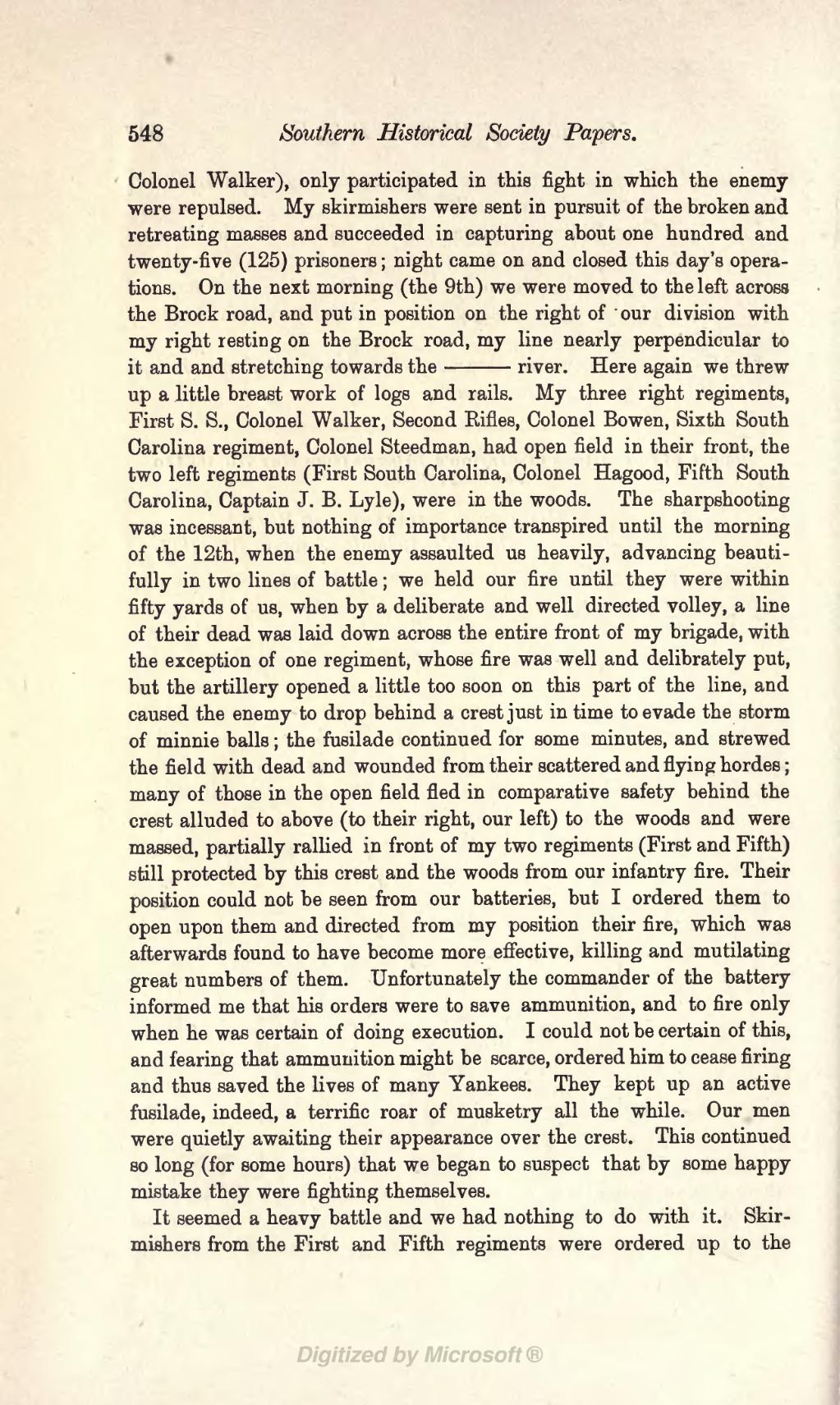Colonel Walker), only participated in this fight in which the enemy were repulsed. My skirmishers were sent in pursuit of the broken and retreating masses and succeeded in capturing about one hundred and twenty-five (125) prisoners; night came on and closed this day's operations. On the next morning (the 9th) we were moved to the left across the Brock road, and put in position on the right of "our division with my right resting on the Brock road, my line nearly perpendicular to it and and stretching towards the ———— river. Here again we threw up a little breast work of logs and rails. My three right regiments, First S. S., Colonel Walker, Second Rifles, Colonel Bowen, Sixth South Carolina regiment, Colonel Steedman, had open field in their front, the two left regiments (First South Carolina, Colonel Hagood, Fifth South Carolina, Captain J. B. Lyle), were in the woods. The sharpshooting was incessant, but nothing of importance transpired until the morning of the 12th, when the enemy assaulted us heavily, advancing beautifully in two lines of battle; we held our fire until they were within fifty yards of us, when by a deliberate and well directed volley, a line of their dead was laid down across the entire front of my brigade, with the exception of one regiment, whose fire was well and deliberately put, but the artillery opened a little too soon on this part of the line, and caused the enemy to drop behind a crest just in time to evade the storm of minnie balls; the fusilade continued for some minutes, and strewed the field with dead and wounded from their scattered and flying hordes; many of those in the open field fled in comparative safety behind the crest alluded to above (to their right, our left) to the woods and were massed, partially rallied in front of my two regiments (First and Fifth) still protected by this crest and the woods from our infantry fire. Their position could not be seen from our batteries, but I ordered them to open upon them and directed from my position their fire, which was afterwards found to have become more effective, killing and mutilating great numbers of them. Unfortunately the commander of the battery informed me that his orders were to save ammunition, and to fire only when he was certain of doing execution. I could not be certain of this, and fearing that ammunition might be scarce, ordered him to cease firing and thus saved the lives of many Yankees. They kept up an active fusillade, indeed, a terrific roar of musketry all the while. Our men were quietly awaiting their appearance over the crest. This continued so long (for some hours) that we began to suspect that by some happy mistake they were fighting themselves.
It seemed a heavy battle and we had nothing to do with it. Skirmishers from the First and Fifth regiments were ordered up to the
